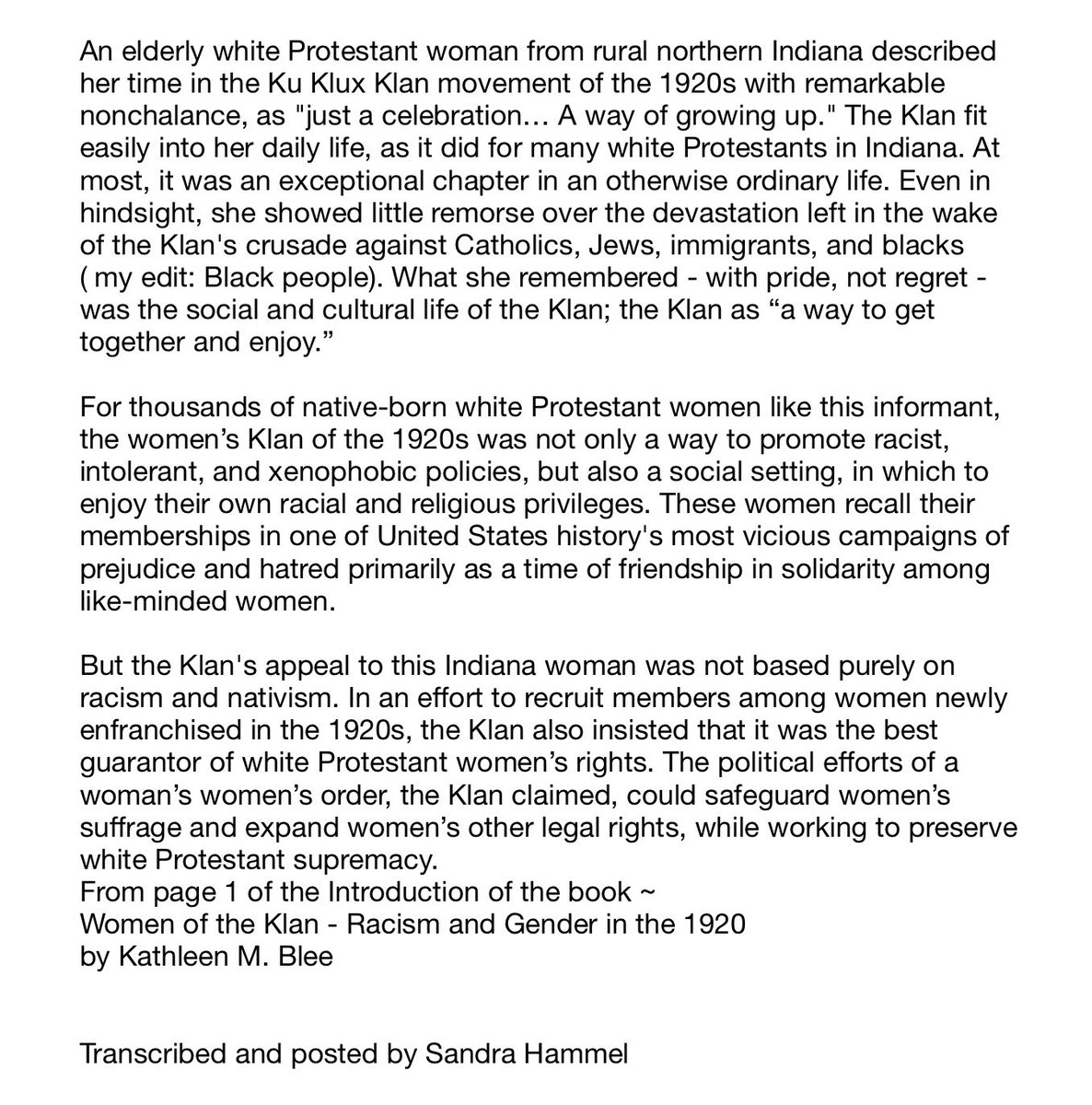An elderly white Protestant woman from rural northern Indiana described her time in the Ku Klux Klan movement of the 1920s w remarkable nonchalance, as "just a celebration...A way of growing up" WomenOfTheKlan - #Racism & Gender in the 1920s by KathleenMBlee #BlackLivesMatter 1/ 

The Klan fit easily into her daily life, as it did for many white Protestants in Indiana. At most, it was an exceptional chapter in an otherwise ordinary life. Even in hindsight, (continuing from WomenOfTheKlan - #Racism & Gender InThe 1920s by KathleenMBlee) #BlackLivesMatter 2/ 



she showed little remorse over the devastation left in the wake of the Klan's crusade against Catholics, Jews, immigrants & blacks (my edit: Black people). What she remembered - with pride, not regret - was the social & cultural life of the Klan; (Continues #WomenOfTheKlan...) 3/ 



the Klan as “a way to get together & enjoy.” For thousands of native-born white Protestant women like this informant, the women’s Klan of the 1920s was not only a way to promote racist, intolerant, & xenophobic policies,
(continuing from Women of the Klan..)#BlackLivesMatter 4/
(continuing from Women of the Klan..)#BlackLivesMatter 4/

but also a social setting, in which to enjoy their own racial & religious privileges. These women recall their memberships in one of U.S. history's most vicious campaigns of prejudice & #hatred primarily as a time of friendship in solidarity among like-minded women. #KlanWomen 5/ 



But the Klan's appeal to this Indiana woman was not based purely on racism & nativism. In an effort to recruit members among women newly enfranchised in the 1920s, the #Klan also insisted that it was the best guarantor of white Protestant women’s rights.#WomenOfTheKlan #Racism 6/ 







The political efforts of a woman’s women’s order, the #Klan claimed, could safeguard women’s suffrage & expand women’s other legal rights, while working to preserve #whiteProtestantSupremacy. (continuing from #WomenOfTheKlan - #Racism & Gender in the 1920s) #BlackLivesMatter 7/ 



• • •
Missing some Tweet in this thread? You can try to
force a refresh











